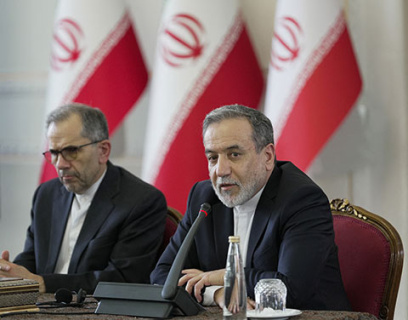
Iran is considering a return to nuclear negotiations with the United States but has attached a critical condition: a “solid guarantee” of non-aggression from Washington. The position, outlined by Deputy Foreign Minister Abbas Araghchi, signals a potential diplomatic overture in the wake of escalating regional conflict and comes just after Israeli Prime Minister Benjamin Netanyahu’s visit to the U.S., where he reportedly sought backing for further military strikes against Iranian infrastructure.
Speaking to foreign diplomats in Tehran, Araghchi specified that any potential dialogue would focus exclusively on Iran’s nuclear program in exchange for comprehensive sanctions relief, with no other issues on the table. He stressed that a recent 12-day conflict, which included attacks on Iranian nuclear sites, had “further complicated” the path to a negotiated settlement, making robust security assurances from the U.S. an absolute necessity for talks to resume. This sentiment was echoed by Iranian Vice President Mohammad Reza Aref, who described the government’s stance as pursuing “negotiations with the parallel application of force.”
Tehran’s cautious diplomatic signaling is set against a backdrop of recent direct threats. Iranian President Masoud Pezeshkian recently confirmed he was the target of an Israeli assassination attempt during the conflict, an attack that left him with minor injuries. According to former presidential advisor Ali Asghar Shafiyan, President Pezeshkian, a notable reformist, has successfully forged a consensus among Iran’s competing power centers to pursue dialogue with the U.S., creating what Shafiyan called a “golden opportunity” to reset relations.
Meanwhile, Israel remains a primary driver of regional pressure. According to The Wall Street Journal, Netanyahu’s meetings with U.S. President Donald Trump included discussions about a potential new wave of strikes on Iran. While Israel may not seek direct U.S. approval for future attacks, it could face resistance from an American president aiming to keep diplomatic channels open. In a recent interview, Netanyahu laid out his own terms for an “exceptional deal,” demanding Iran cease all uranium enrichment, halt its ballistic missile program, and dismantle its regional “axis of terror” via proxy forces.
While the United States appears to be keeping the door open for diplomacy, European allies are adopting a decidedly tougher stance. U.K. Foreign Secretary David Lammy warned that European nations are prepared to impose “crippling sanctions” in the coming weeks if Iran does not fully cooperate with the International Atomic Energy Agency (IAEA) and clarify its nuclear activities. In a stern message, Lammy added that Tehran should not expect Israel to halt its military operations. This complex web of diplomacy and military threats leaves the prospect of new negotiations hanging in a delicate balance.
